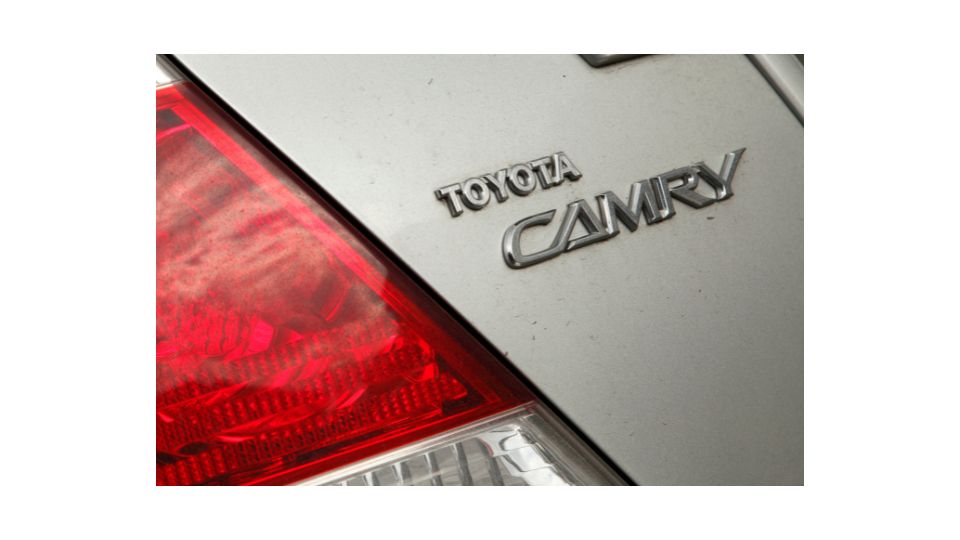Toyota Camry is a popular mid-size sedan that has been in production for several decades. Over the years, the Camry has earned a reputation for reliability, fuel efficiency, and comfort. However, like any other vehicle, the Camry is not immune to mechanical issues, and one of the most common problems reported by owners is acceleration problems.
Acceleration problems in Toyota Camry can manifest in various ways, such as sudden acceleration, deceleration, or loss of power. These issues can be frustrating, dangerous, and costly, and they can affect the vehicle’s performance, safety, and resale value. Therefore, it is essential for Camry owners to be aware of the causes, symptoms, and solutions of acceleration problems, as well as the legal and warranty considerations.
This article provides an overview of Toyota Camry acceleration problems, including their potential causes, diagnostic procedures, repair and maintenance solutions, preventive measures, impact on vehicle performance, safety concerns, owner experiences and reports, manufacturer’s response, legal and warranty considerations, and frequently asked questions. By reading this article, Camry owners can gain a better understanding of their vehicle’s acceleration issues and how to address them effectively.
Key Takeaways
- Toyota Camry acceleration problems can affect the vehicle’s performance, safety, and resale value.
- Common symptoms of acceleration problems include sudden acceleration, deceleration, or loss of power.
- Diagnostic procedures, repair and maintenance solutions, and preventive measures can help address acceleration issues and reduce the risk of accidents and legal liabilities.
Overview of Toyota Camry Acceleration Issues
The Toyota Camry is a popular mid-size sedan that has been in production for several decades. While it is generally known for its reliability and durability, some drivers have reported issues with acceleration. These issues can range from delayed acceleration to sudden acceleration, and they can be caused by a variety of factors.
One of the most common causes of acceleration issues in the Toyota Camry is a faulty throttle position sensor. This sensor is responsible for monitoring the position of the accelerator pedal and sending signals to the engine control module (ECM) to adjust the throttle accordingly. If the sensor is faulty, it can cause the ECM to receive incorrect signals, resulting in delayed or erratic acceleration.
Another common cause of acceleration issues in the Toyota Camry is a clogged air filter. The air filter is responsible for filtering out dirt and debris from the air that enters the engine. If the filter becomes clogged, it can restrict the flow of air to the engine, which can result in decreased acceleration.
In some cases, acceleration issues in the Toyota Camry can be caused by problems with the transmission. The transmission is responsible for transferring power from the engine to the wheels, and if it is not functioning properly, it can cause delayed or erratic acceleration.
It is important to note that not all acceleration issues in the Toyota Camry are caused by mechanical problems. In some cases, the issue may be related to driver error or external factors such as road conditions or weather. Therefore, it is important to rule out these factors before assuming that there is a problem with the vehicle.
In conclusion, acceleration issues can be frustrating for Toyota Camry owners, but they can be resolved by identifying and addressing the underlying cause. By keeping up with regular maintenance and addressing any issues promptly, drivers can ensure that their Camry continues to provide reliable and efficient performance.
Common Symptoms of Acceleration Problems
Acceleration problems in a Toyota Camry can manifest in various ways, causing inconvenience and safety hazards for drivers. This section outlines the most common symptoms of acceleration problems that Camry owners may encounter.
Hesitation During Acceleration
One of the most common symptoms of acceleration problems in a Toyota Camry is hesitation during acceleration. This symptom is characterized by a delay or sluggish response when the driver presses the accelerator pedal. The vehicle may take longer than usual to reach the desired speed, and the engine may sound strained or struggle to keep up. Hesitation during acceleration can be caused by a wide range of issues, such as a clogged fuel filter, dirty fuel injectors, or a malfunctioning throttle position sensor.
Sudden Unintended Acceleration
Sudden unintended acceleration is a severe acceleration problem that can occur in Toyota Camry vehicles. This symptom is characterized by the vehicle accelerating on its own without the driver pressing the accelerator pedal. Sudden unintended acceleration can be caused by a range of issues, such as a malfunctioning electronic throttle control system, a stuck accelerator pedal, or a faulty floor mat. This issue can be dangerous and should be addressed immediately.
Reduced Engine Power
Another common symptom of acceleration problems in a Toyota Camry is reduced engine power. This symptom is characterized by a lack of power when the driver presses the accelerator pedal. The vehicle may struggle to reach the desired speed, and the engine may sound weak or underpowered. Reduced engine power can be caused by various issues, such as a clogged air filter, a malfunctioning fuel pump, or a faulty mass airflow sensor.
In conclusion, acceleration problems in a Toyota Camry can manifest in various ways, causing inconvenience and safety hazards for drivers. It’s essential to address these symptoms promptly to ensure safe driving and prevent further damage to the vehicle.
Potential Causes of Acceleration Problems
Acceleration problems in a Toyota Camry can be caused by a variety of issues related to the throttle body, sensors, and fuel system. Here are some of the potential causes of acceleration problems in a Toyota Camry.
Faulty Throttle Body
A dirty or faulty throttle body can cause acceleration problems in a Toyota Camry. The throttle body regulates the amount of air that enters the engine and controls the engine’s RPMs. If the throttle body is dirty or faulty, it can cause the engine to hesitate or stall, which can result in acceleration problems. To fix this issue, the throttle body should be cleaned or replaced.
Malfunctioning Sensors
The Camry’s sensors play a crucial role in the car’s performance. If any of the sensors malfunction, it can cause acceleration problems. The most common sensors that can cause acceleration problems are the oxygen sensor, mass airflow sensor, and the throttle position sensor. These sensors can become dirty, damaged, or fail over time, which can cause the engine to hesitate or stall. To fix this issue, the faulty sensor should be replaced.
Fuel System Complications
The fuel system is responsible for providing the engine with the necessary fuel to run. If the fuel system is not working correctly, it can cause acceleration problems. The most common fuel system issues that can cause acceleration problems are clogged fuel injectors, a dirty fuel filter, and a faulty fuel pump. These issues can cause the engine to hesitate or stall, which can result in acceleration problems. To fix this issue, the fuel system should be inspected and repaired as necessary.
In conclusion, acceleration problems in a Toyota Camry can be caused by a variety of issues related to the throttle body, sensors, and fuel system. It is important to have the car inspected by a qualified mechanic to determine the root cause of the problem and to have it repaired as soon as possible to ensure safe driving.
Diagnostic Procedures
Error Code Analysis
When diagnosing acceleration problems in a Toyota Camry, the first step is to check for error codes. These codes can be retrieved using an OBD-II scanner, which can be purchased or rented from most auto parts stores. Once the codes have been retrieved, they can be cross-referenced with the manufacturer’s diagnostic code manual to determine the cause of the problem.
Physical Inspection Guidelines
After checking for error codes, a physical inspection of the vehicle should be performed. This includes checking the air filter, fuel filter, and spark plugs for wear or damage. The throttle body should also be inspected for any signs of damage or wear. Additionally, the fuel pump and fuel injectors should be checked for proper operation.
Performance Testing
If the physical inspection does not reveal any obvious problems, performance testing should be performed. This involves checking the fuel pressure, vacuum pressure, and ignition timing. The throttle position sensor and mass airflow sensor should also be checked for proper operation.
It is important to note that diagnosing acceleration problems in a Toyota Camry can be a complex process, and it may be necessary to consult with a professional mechanic for assistance. By following these diagnostic procedures, however, the cause of the problem can often be identified and resolved in a timely and cost-effective manner.
Repair and Maintenance Solutions
Throttle Body Service
One of the common reasons for Toyota Camry acceleration problems is a dirty throttle body. The throttle body controls the amount of air that enters the engine, and if it is dirty, it can cause a reduction in acceleration. To solve this problem, the throttle body needs to be cleaned. This can be done by removing the air intake hose and using a throttle body cleaner to clean the throttle body. It is important to note that the throttle body should only be cleaned by a professional mechanic to avoid any damage to the engine.
Sensor Replacements
Another cause of Toyota Camry acceleration problems is faulty sensors. The Camry has several sensors that are responsible for monitoring the engine’s performance and sending signals to the engine control module (ECM). If any of these sensors are faulty, it can cause acceleration problems. The most common sensors that need replacement are the mass airflow sensor (MAF), throttle position sensor (TPS), and oxygen sensor (O2). Replacing these sensors can solve the acceleration problem and improve the car’s performance.
Fuel System Repairs
The fuel system is responsible for delivering fuel to the engine, and if it is not functioning properly, it can cause acceleration problems. One of the common fuel system problems is a clogged fuel filter. The fuel filter needs to be replaced regularly to ensure that the fuel system is working properly. Another problem is a faulty fuel pump or fuel injectors. If the fuel pump or injectors are not working properly, it can cause a reduction in acceleration. Replacing the fuel pump or injectors can solve the acceleration problem.
In conclusion, Toyota Camry acceleration problems can be frustrating, but they can be solved with the right repairs and maintenance. Throttle body service, sensor replacements, and fuel system repairs are some of the solutions that can improve the car’s performance. It is important to have the car inspected by a professional mechanic to diagnose the problem accurately and avoid any further damage to the engine.
Preventive Measures and Best Practices
Regular Vehicle Maintenance
Regular vehicle maintenance is crucial to prevent acceleration problems in Toyota Camry. It is recommended to follow the manufacturer’s maintenance schedule, which includes oil changes, air filter replacement, and spark plug replacement. Regular maintenance not only ensures that the car is running smoothly but also helps detect any potential problems early on.
Software Updates and Recalls
Toyota Camry owners should ensure that their vehicles are up-to-date with the latest software updates and recalls. Toyota has issued several recalls for acceleration-related issues in the past, and it is important to address them promptly. Owners can check if their vehicle is affected by a recall by visiting the Toyota website or contacting a local dealership.
Driving Tips
Proper driving techniques can also help prevent acceleration problems in Toyota Camry. Drivers should avoid sudden acceleration or sudden braking, as it can put unnecessary strain on the engine and transmission. It is also important to drive at a safe speed and maintain a safe distance from other vehicles on the road. Drivers should also avoid overloading the vehicle, as it can affect the car’s performance and fuel efficiency.
In conclusion, regular vehicle maintenance, software updates and recalls, and proper driving techniques are essential to prevent acceleration problems in Toyota Camry. By following these best practices, owners can ensure that their vehicles are running smoothly and safely on the road.
Impact on Vehicle Performance
The acceleration problem in Toyota Camry can have a significant impact on the vehicle’s performance. The issue can cause the car to suddenly lose power or surge forward unexpectedly, which can be dangerous for the driver and other passengers on the road.
One of the most common consequences of the acceleration problem is a decrease in fuel efficiency. When the car’s engine is not running smoothly, it can consume more fuel than usual, leading to higher fuel costs. Additionally, the car’s acceleration may be sluggish or delayed, making it difficult to merge onto highways or pass other vehicles on the road.
The acceleration problem can also cause damage to the car’s engine and transmission. When the engine is forced to work harder than usual, it can overheat and wear out faster. The transmission may also experience excessive wear and tear, leading to costly repairs or replacements.
Furthermore, the acceleration problem can affect the car’s resale value. Potential buyers may be hesitant to purchase a car with a known acceleration issue, and the car may not sell for as much as it would have otherwise.
In summary, the acceleration problem in Toyota Camry can have a significant impact on the vehicle’s performance, fuel efficiency, engine and transmission health, and resale value. It is essential to address the issue promptly to ensure the safety and reliability of the car.
Safety Concerns and Risk Factors
The Toyota Camry has had a few acceleration issues that have raised safety concerns and risk factors among car owners and buyers. The NHTSA-NASA study in 2014 revealed that electronic malfunctions in Toyota vehicles could cause unintended acceleration. Although Toyota has recalled millions of vehicles due to acceleration problems, some owners still report issues with their vehicles.
One risk factor associated with Toyota Camry acceleration problems is the potential for accidents. Unintended acceleration can cause a driver to lose control of the vehicle, leading to a collision. This risk is particularly high when the car is traveling at high speeds. In some cases, the accidents caused by unintended acceleration have resulted in injuries and fatalities.
Another risk factor is the impact on the resale value of the Toyota Camry. The acceleration problems have led to negative publicity and a loss of consumer confidence in the brand. As a result, some Camry owners may find it difficult to sell their vehicles or may receive lower offers than expected.
To address these safety concerns and risk factors, Toyota has taken several measures. The company has recalled millions of vehicles to fix acceleration problems, and it has also introduced new safety features to prevent unintended acceleration. These features include brake override systems, which can stop the car if the accelerator and brake pedals are pressed simultaneously.
Despite these measures, some owners still report issues with their Toyota Camry’s acceleration. It is important for Camry owners to stay informed about any recalls or safety issues related to their vehicles and to take appropriate action if necessary. Regular maintenance and inspections can also help prevent acceleration problems and ensure the safety of the driver and passengers.
Owner Experiences and Reports
Case Studies
One of the most common issues reported by Toyota Camry owners is sudden acceleration. In one case study, a 2019 Camry SE owner reported experiencing hesitation when accelerating and braking, which was sometimes made worse by speed or braking hard. The owner noticed this issue four months after purchasing the car. After researching online, the owner found that many other Camry owners had reported similar issues.
Another case study involved a 2019 Camry owner who was making a slow turn into a drive-thru restaurant with their foot on the brake when the car suddenly accelerated on its own. The owner was able to avoid hitting anyone but ended up jumping the curb and causing significant damage to their car and the restaurant.
Owner Testimonials
Many Toyota Camry owners have reported acceleration problems and shared their experiences online. Some owners have reported issues with hesitation or a delay in acceleration when pressing the gas pedal. Others have reported sudden acceleration, where the car accelerates on its own without the driver pressing the gas pedal.
One owner reported that their 2020 Camry had a dead battery after leaving it parked for a short period. Another owner reported that their 2019 Camry had issues with the car’s 12V battery, which required jump-starts.
Overall, it is clear that acceleration problems are a common issue reported by Toyota Camry owners. If you are experiencing any issues with your Camry’s acceleration, it is important to have it inspected by a qualified mechanic to ensure your safety on the road.
Manufacturer’s Response to Acceleration Issues
Toyota faced a number of acceleration-related issues in the early 2010s. These issues were related to two problems: accelerator pedal entrapment by floor mats, and accelerator pedals sticking or returning slowly after being depressed.
Toyota responded to these issues by recalling millions of vehicles and implementing a number of changes to prevent similar issues from occurring in the future. Some of these changes are outlined below:
- Recalls: Toyota recalled millions of vehicles to address acceleration-related issues. The company also temporarily suspended sales of some models to investigate the root causes of the problems.
- Floor Mat Modifications: Toyota modified the design of floor mats to prevent them from interfering with accelerator pedals. The company also advised customers to remove any floor mats that were not specifically designed for their vehicles.
- Throttle Modifications: Toyota modified the design of accelerator pedals to prevent them from sticking or returning slowly after being depressed. The company also installed brake override systems in some models to ensure that the brakes would take precedence over the accelerator if both pedals were pressed simultaneously.
- Improved Communication: Toyota improved its communication with customers and regulators to ensure that issues were identified and addressed as quickly as possible. The company also established a special customer support program to help customers who were affected by the recalls.
Despite these efforts, Toyota faced significant criticism for its handling of the acceleration-related issues. Some critics accused the company of being slow to respond to the problems and of failing to take adequate responsibility for the safety of its customers.
In response to this criticism, Toyota has continued to make changes to its operations and procedures to improve its safety record and regain the trust of its customers. The company has also emphasized the importance of transparency and accountability in its dealings with regulators and customers.
Legal and Warranty Considerations
When experiencing acceleration problems with their Toyota Camry, drivers may wonder about their legal and warranty options. It is important to note that the legal and warranty considerations will vary depending on the cause of the acceleration issue.
If the acceleration problem is due to a manufacturing defect, the driver may be covered under the Toyota warranty. Toyota offers a three-year/36,000-mile basic warranty and a five-year/60,000-mile powertrain warranty. If the vehicle is still under warranty and the acceleration issue is covered, the driver may be able to have the problem fixed at no cost.
However, if the acceleration issue is due to wear and tear or driver error, it may not be covered under the warranty. In this case, the driver may need to pay out of pocket for repairs. It is important to review the specific terms of the Toyota warranty to determine coverage.
In terms of legal considerations, if the acceleration issue causes an accident or injury, the driver may be liable for damages. It is important for drivers to follow all safety guidelines and to have their vehicles inspected regularly to prevent accidents and potential legal issues.
In the event that a driver believes their Toyota Camry has experienced unintended acceleration, they may be eligible to participate in a class-action lawsuit. However, it is important to note that these lawsuits can take years to resolve and may not result in a favorable outcome for all participants.
Overall, it is important for Toyota Camry drivers to understand their legal and warranty options when experiencing acceleration problems. By staying informed and taking appropriate action, drivers can ensure the safety of themselves and others on the road.
Frequently Asked Questions about Toyota Camry Acceleration Problems
What are common causes for acceleration issues in Toyota Camrys?
There can be several reasons behind acceleration problems in Toyota Camrys. Some of the most common causes include clogged fuel filters, faulty spark plugs, malfunctioning oxygen sensors, and dirty mass airflow sensors. In some cases, issues with the transmission or fuel system can also lead to acceleration problems.
How can hesitation during acceleration in a Toyota Camry be addressed?
Hesitation during acceleration can be caused by several factors, including a clogged fuel filter, a dirty air filter, or a malfunctioning oxygen sensor. It is important to have the car inspected by a qualified mechanic who can diagnose the issue and recommend the appropriate repairs.
Are there any recalls related to acceleration problems in recent Toyota Camry models?
In recent years, Toyota has issued several recalls related to acceleration problems in Toyota Camry models. These recalls have been related to issues with the gas pedal assembly and floor mats that can trap the accelerator pedal, leading to unintended acceleration. It is important to check with a Toyota dealership to see if your vehicle is affected by any recalls.
What troubleshooting steps should be taken for a Toyota Camry experiencing acceleration problems?
If your Toyota Camry is experiencing acceleration problems, it is important to have the car inspected by a qualified mechanic. The mechanic will typically start by checking the engine codes to identify any underlying issues. They may also inspect the fuel system, air filter, and other components to determine the cause of the problem.
Can software issues affect the acceleration of a Toyota Camry?
Yes, software issues can sometimes affect the acceleration of a Toyota Camry. In some cases, issues with the car’s computer system or sensors can cause the engine to run improperly, leading to acceleration problems. It is important to have the car inspected by a qualified mechanic who can diagnose and repair any software-related issues.
What maintenance tips can prevent acceleration problems in a Toyota Camry?
Regular maintenance can help prevent acceleration problems in a Toyota Camry. This includes changing the air filter and fuel filter at regular intervals, keeping the fuel system clean, and replacing spark plugs as needed. It is also important to have the car inspected by a qualified mechanic on a regular basis to catch any potential issues before they become major problems.

When he’s not working his magic under the hood, Ethan Wilson is usually sharing his love for Toyota cars through his writing. Ethan’s got a special talent for breaking down complex car topics into easy-to-understand articles, making him a go-to source for Toyota enthusiasts everywhere.




